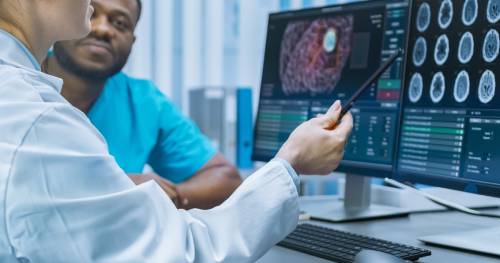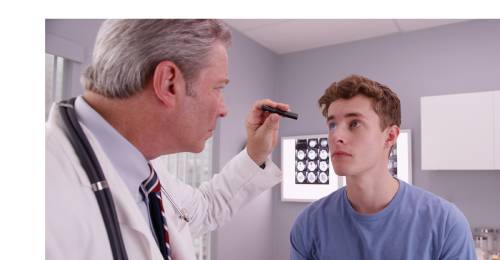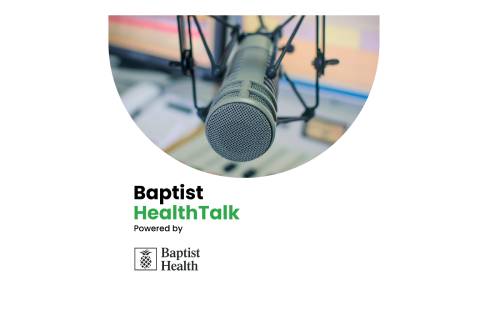
Science
Epilepsy: What You Should Know
2 min. read
Baptist Health Marcus Neuroscience Institute
Only California and Texas surpass Florida in the number of people who suffer from epilepsy, according to the Centers for Disease Control and Prevention (CDC). Characterized by abnormal brain activity that leads to seizures, epilepsy affects some 50 million people around the world and impacts everything from their capacity for work tasks to their ability to drive.
The Epilepsy Program at Marcus Neuroscience Institute at Boca Raton Regional Hospital, part of Baptist Health, has the only epilepsy monitoring unit (EMU) from West Palm Beach to Fort Lauderdale. In the EMU, doctors monitor brain activity before, during and after a seizure to gain real-time information to help them treat the disorder. The Institute is accredited as a Level 3 Epilepsy Center by the National Association of Epilepsy Centers.
November is National Epilepsy Awareness Month. In Top of Mind, a video program that focuses on neuroscience services at Baptist Health, Pooja Patel, M.D., a neurologist and director of the Epilepsy Program at Marcus Neuroscience Institute, sat down with us to discuss epilepsy.

Neurologist Pooja Patel, M.D., director of the Epilepsy Program at Marcus Neuroscience Institute, part of Baptist Health
Resource: What is epilepsy and how are people affected by it?
Dr. Patel: Epilepsy is a neurological disorder that causes recurrent seizures ― sudden surges of abnormal electrical activity in the brain. Seizure symptoms can vary widely, including episodes of staring, loss of awareness or consciousness, or full-body convulsions. Epilepsy is diagnosed after a patient has had two or more unprovoked seizures. This is a life-changing diagnosis for a lot of people because of the lifestyle modifications that can come with it.
Resource: Are there risk factors for epilepsy?
Dr. Patel: Yes. Risk factors in pediatric populations is often genetic or due to developmental problems. In adults, stroke is the most common risk factor. And for both pediatric and adult patient populations, traumatic brain injury, brain tumor and brain infection can bring about epilepsy.
Resource: What are some of the triggers for a seizure?
Dr. Patel: There are a lot of triggers, including dehydration, lack of sleep, alcohol, drugs and certain prescription medications.
Resource: What are some of the treatment options for people with epilepsy?
Dr. Patel: Anti-epileptic medications are by far the mainstay of the treatment for epilepsy. About 60 percent of the patient population is successfully treated with anti-epileptic medications. Beyond that, there are newer treatment options, including neurostimulation and also epilepsy surgery.
Resource: What does the future of epilepsy treatment look like?
Dr. Patel: Over the next years, I believe we will have the same treatment modalities, but will be fine-tuning them so that the patient has better outcomes and fewer complications. Earlier recognition of this disorder is really helping prevent some of the morbidity and mortality.
In addition to medical management and surgery for epilepsy, Marcus Neuroscience Institute is the only hospital in the region to offer vagus nerve stimulation and responsive neurostimulation. Both involve implanting a small battery-powered device that can reduce or prevent seizures. For more information on the Marcus Neuroscience Institute program at Boca Raton Regional Hospital, click here. For information about Miami Neuroscience Institute’s program, click here.
Healthcare that Cares
Related Stories
View All Articles
Baptist Health, FIU’s Herbert Wertheim College of Medicine Partner in New Clinical Trial That Could Revolutionize Care for Alzheimer’s Patients
March 28, 2024
2 min. read

Brain Injury Awareness: Understanding Immediate and Long-Term Neurological Effects
March 27, 2024
3 min. read
